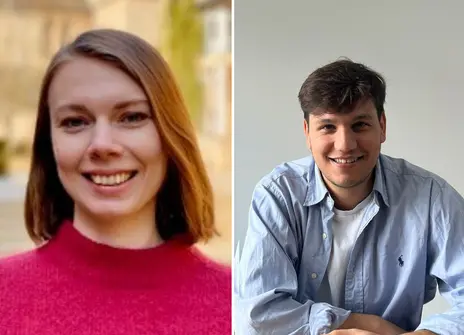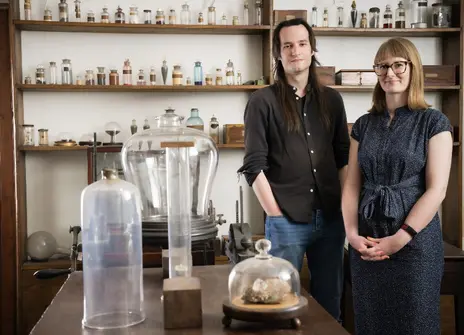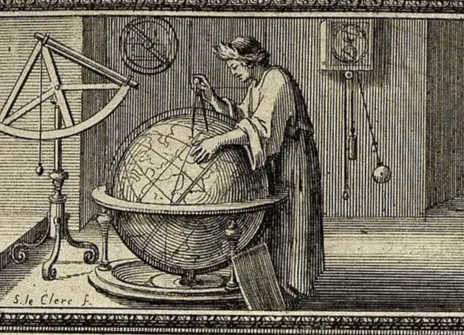Ri Freer Prize Fellowship
The Ri Freer Prize Fellowships are intended as writing-up awards for doctoral candidates researching the history of science, history of the Royal Institution, or heritage conservation science.
Key Dates and Application Information
Type of award: Prize Fellowship for doctoral candidates in their unfunded writing-up year.
Areas of research supported: history of science and technology; heritage conservation science; history of the Royal Institution.
Stipend: £18,000 (the Fellowship will pay maintenance but not fees).
Duration of Fellowship: 12 months (commencing 1 October 2026).
Type of award: Prize Fellowship for doctoral candidates in their unfunded writing-up year.
How to apply: To apply, please send the documents required via this application form -https://rigb.tfaforms.net/3
Applications close on 31/03/2026
Shortlisted applicants will be notified by April 2026
Two Ri Freer Prize Fellows will be announced by June 2026
Applications will be reviewed by a panel of experts in the specified subject areas.
There will be no interview.
Referees are only contacted at the short-listing stage.
All queries should be directed to Freer Administrator Hannah Pratt - hpratt@ri.ac.uk
Application Materials Needed
CV (no more than 2 sides)
General interest pitch of the applicant’s doctoral research (750 words)
Thesis summary (no more than 500 words), which MUST include the title of your thesis and your expected completion date.
Video This should be an Introduction to yourself and your research (A short film of no more than 3 minutes and should be submitted in the form of a video link via YouTube, and should be an unlisted video) more guidance on how to create a video suitable for your application can be found below.
Names and contact details for 2 referees, including PhD supervisor (referees will only be contacted at the short-list stage).
Deadline for applications: 31/03/2026
How to apply: To apply, please send the documents required via this application form - https://rigb.tfaforms.net/3
Additional Information
All files must be clearly labelled to include the name of the applicant and the name of the document.
All written application materials should be in PDF format
Any queries should be directed to Freer Administrator Hannah Pratt h.pratt@ri.ac.uk
Video guidance
If you are unsure of how to submit a video link please follow the following guide on how to do so:
How to upload onto YouTube from Google
How to upload on to YouTube using your phone
How to upload your video from Wix
For further details such as criteria for assessment, more information regarding the fellowship and application terms and conditions please see the links at the bottom of the page.
Will this opportunity suit you?
Ri Freer Prize Fellowships are awarded based on candidates’ ability to identify and communicate the significance and potential of their research in a compelling way that can engage a general interest audience. For further details see the Criteria for Assessment.
Ri Freer Prize Fellow support: Ri Freer Prize Fellows will benefit from significant opportunities to promote their research on Ri platforms, and to establish valuable new contacts and collaborations in academia, industry, heritage, policy, charity and media sectors. There will also be opportunities to engage with the Ri’s public lecture programs, archives, masterclasses and education programs. Any Freer Prize Fellowship winners will also be introduced to the Ri’s network and receive training for professional development.
Ri Freer Prize Fellow commitments: Ri Freer Prize Fellows will commit to a number of general interest outputs to promote their research. The precise nature of these outputs will be decided in discussion with the Ri but will include short films; tours for visitors to Ri collections; and blogs. Ri Freer Prize Fellows will be supported to produce these outputs and where appropriate link their work to Ri collections and heritage as part of research promotion. Ri Freer Prize Fellows are not required to live in London but will be expected to attend key events.
About the Ri: Founded in 1799, the Ri is a world-famous independent charity dedicated to enhancing public understanding of science and the role of science in society. Among its many luminaries, the analytical chemist and pioneer of modern experimental physics, Michael Faraday, is the most famous. Philip Freer was a collateral descendant of Faraday and a great philanthropist who established the Philip Freer Trust to support postgraduate students to “make a difference in the world”



